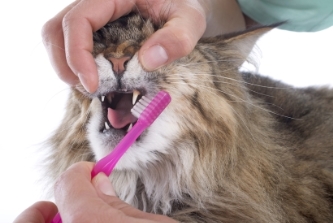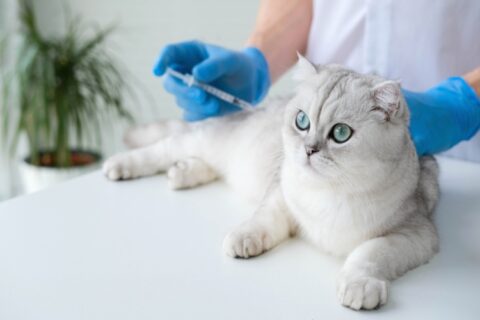How to Care for Your Cat’s Teeth

Maintaining your cat’s dental hygiene is crucial to ensuring that your feline friend lives a long, healthy life. Dental problems such as tooth decay and gum disease can quickly spread to other areas of the body, causing infections and heart problems. Read this article for tips on maintaining your cat’s oral health. For additional information, visit a veterinarian in San Jose.
Provide a Healthy Diet and Check Your Cat’s Breath
Providing your cat or kitten with a healthy, balanced diet is one of the best ways to prevent serious oral problems. Your cat’s diet should be tailored to his age as well as his nutritional needs. Your veterinarian can provide you with information on the nutritional elements required for a balanced diet.
Sure, we don’t expect our cats to have amazing breath, they’re certainly not worried about breath mints, but if your cat’s breath is noticeably and unusually bad, it may be an indicator of significant oral issues. Bad breath and drooling can be symptoms of gum disease, tooth decay, and even digestive problems. If your cat’s mouth indeed has an abnormally strong odor, he should be examined by a veterinarian.
Take Your Cat to the Veterinarian Regularly
You are your cat’s first line of defense in detecting signs of illness or injury, but you should also visit your veterinarian at least once per year. Cats are great at hiding health problems, so regular vet appointments can help identify problems that you may have missed at home. Some of these health conditions can include, but are not limited to:
- High Blood Pressure
- Overactive thyroid gland
- Declining kidney function
- Diabetes
- Cancer
- Heart problems
- Dental problems
Early diagnosis
of many of these problems can mean more treatment options and improved quality of life. Regular exams also give you the opportunity to discuss a number of factors crucial to your cat’s health and wellness, including:
- Nutrition
- Behavior Issues
- Dental Care
- Parasite Control
- Vaccinations
These discussions can help you and your veterinarian set up a preventative wellness plan to keep your cat as healthy as possible. Regular visits will also give your veterinarian a “baseline” for your cat’s normal condition, should an emergency or sudden illness arise.
Brush Your Cat’s Teeth
In between vet appointments, try to brush your cat’s teeth a couple of times a week. Ideally, you should brush your cat’s teeth once a day, but we understand what a difficult undertaking that can be. Use a toothbrush and toothpaste that are specially designed for cats, as human toothpaste can make your cat ill if swallowed. Ask your veterinarian about a safe toothpaste on your next visit, we have plenty in stock at Reed Animal Hospital. If a toothbrush is too awkward, you can also apply the toothpaste to a piece of gauze wrapped around your finger — this technique is particularly useful for kittens.

